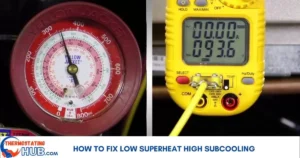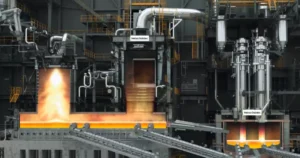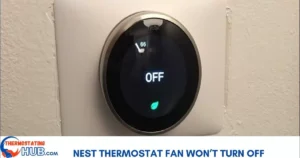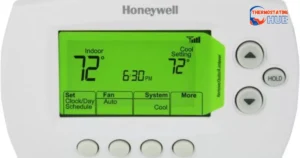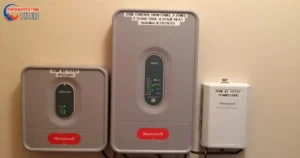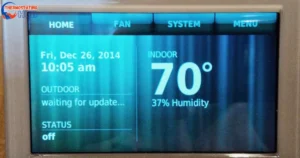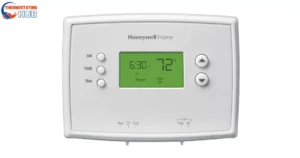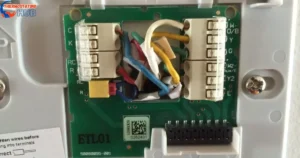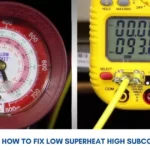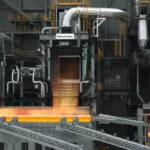It might raise a concern if your AC condenser blows cold air outside instead of heat. However, it’s not uncommon for an air conditioner or heat pump condenser unit to do so.
Let’s delve into the factors contributing to this phenomenon:
- Stuck Reversing Valve
- Incorrect Heat Pump Orientation
- Low Freon Levels
- Failed Compressor
- Loose or Disconnected Wiring
- Bad Capacitor
- Dirty Air Filters
While these are common factors, other issues might contribute to the problem.
Now, let’s explore potential solutions for each of these issues.
7 Factors That Cause AC Condenser To Blow Cold Air Outside
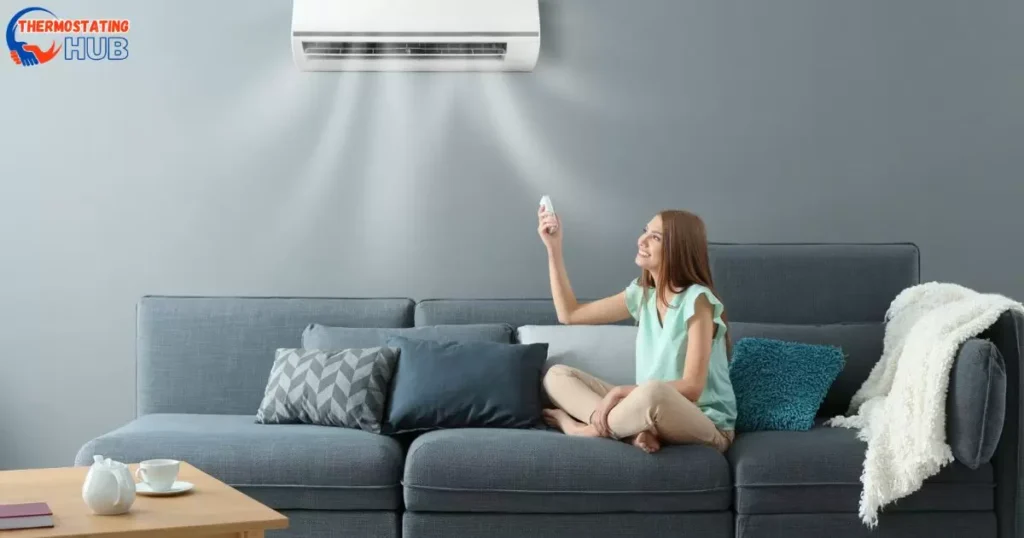
| POSSIBLE CAUSE | MAIN FIXES |
| Stuck Reversing Valve (For Heat Pump) | Replace Solenoid |
| Heat Pump Orientation Settings | Change Orientation Setting |
| Low or Leaking Freon | Identify Leak and Seal |
| Bad Capacitor | Replace Capacitor |
| Loose or Disconnected Wires | Properly Wire Your Thermostat |
| Dirty Filters | Replace Filters |
| Failed Compressor | Replace Compressor |
Problem 1. Stuck reverse valve
It’s not unusual for a heat pump reversing valve to become stuck in either the cool or heat position.
In such situations, your heat pump may continue to release hot air into your home, even if you’ve set it to cool. Consequently, the condenser unit outside blows cold air.
A frequent culprit behind a stuck reversing valve is a malfunctioning solenoid. The solenoid plays a crucial role in toggling between the cooling and heating processes. A defective solenoid can cause the valve to remain stuck in the heat position.
When warm air is coming out of the vents, cold air can be expected to be blown out of the condenser unit.
Solution:
Addressing a stuck reversing valve is a cost-effective solution. Simply replacing a faulty solenoid is a straightforward and inexpensive fix. It’s advisable to enlist the help of a professional for this specific task.
Problem 2. Heat Pump Orientation Settings
If your condenser unit decides to blow cold air unexpectedly, double-checking your changeover configurations is a matter of double-checking.
Especially if you’ve got a Nest thermostat in the mix, take a moment to tweak the heat pump orientation setting. Dive into your thermostat settings and locate the changeover valve setting.
Solution:
The straightforward fix here is to make sure your changeover valve settings are spot-on. For Nest thermostat users, switch it over to O if it’s hanging out on B, and fire up your AC.
Expert Tip: Regularly review your thermostat settings to ensure they align with your HVAC system needs. It’s a simple step that can save you from unexpected chilly surprises!
Read also: Goodman Furnace Solid Red Light On But Furnace Not Working
Problem 3. Low Or Leaking Freon
The most common reason for an AC outdoor unit blowing cool air is low freon levels in the AC system.
Freon, a chemical crucial for the refrigeration cycle that brings about cooling, tends to leak over time due to system wear, leading to a significant drop in freon levels.
When this occurs, the compressor has nothing to compress, resulting in no heat production. As a consequence, the condenser fan blows nothing but cold air.
Watch out for signs like your AC not delivering cold air indoors but blowing cool air outdoors.
Solution:
The solution to tackling low or leaking refrigerant involves identifying and sealing leaks and recharging the system with more refrigerant.
While a home diagnosis method involves pressuring the system and using soapy water to identify leaks, it’s not recommended. Contact a licensed professional for assistance for a safer and more effective solution.
Problem 4. Bad Capacitor
The AC capacitor in the condenser unit is like the power-up button for your AC’s motors, providing the essential power to kick-start the fan motor and compressor.
The Fix:
Spotting a faulty capacitor is usually easy – just look for a bulging top. For a precise check, use a multimeter to test for continuity.
Always prioritize safety! Turn off the power at the circuit breaker and discharge the capacitor before touching anything. If the capacitor is acting up, swap it out for a new one to ensure a smooth power-up for your AC.
Expert Tip: Regularly inspect your AC capacitor for signs of wear, such as a bulging top. This simple check can help you catch issues early and ensure your system stays cool when you need it most.
Problem 5. Loose Or Disconnected Wires
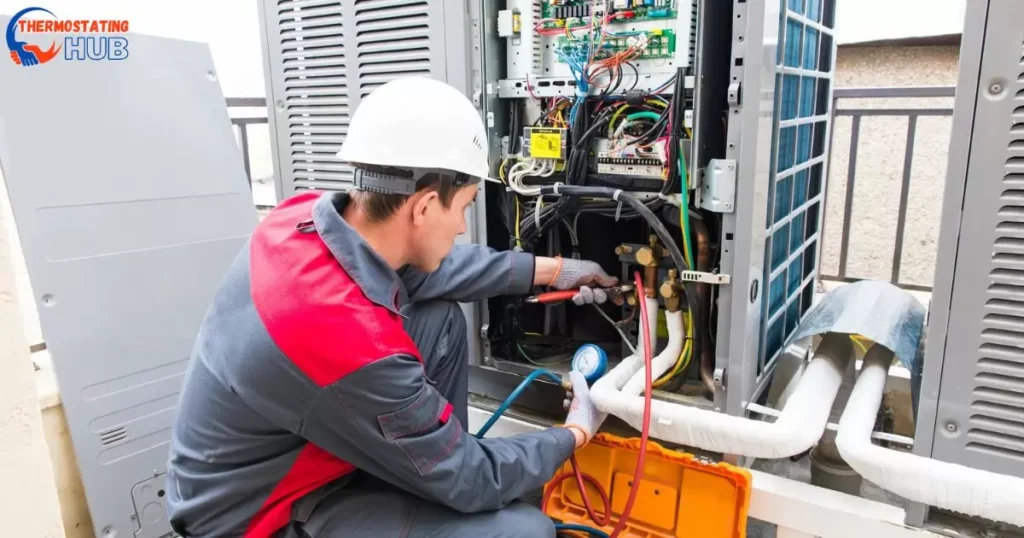
Thermostat wiring ensures your condenser unit efficiently blows cold air outside. To ensure your system works smoothly, it’s essential to have a properly wired thermostat.
Issues may arise when wires are loose or if there’s a disconnection in your wiring.
Solution:
If you encounter problems, take the thermostat off the wall and consult your thermostat manual for wiring guidance. Make sure the wires are securely connected to the terminals, eliminating any loose connections.
Pro Tip: Regularly check and tighten thermostat wires to prevent potential issues with your HVAC system.
Read also: Honeywell Thermostat Blowing Cold Air on Heat Setting
Problem 6. Dirty Filters
Dirty filters wreak havoc in AC systems, causing various issues, and this situation is no exception.
Filters play a crucial role by sieving out dirt, ensuring only clean air reaches the evaporator coils. However, when these filters are dirty, they restrict air to the coil, leading to a condition called low superheat in the evaporator.
Low superheat means the compressor can’t effectively compress the liquid refrigerant, resulting in a lack of heat production. This might be why your AC outdoor unit is blowing cold air.
Solution:
The most effective fix is to purchase and replace the filters. Keep an eye on modern HVAC systems with filter indicator lights, ensuring you promptly replace filters when they’re due for a change.
Expert Tip: Regularly check and replace your AC filters to maintain optimal system performance and prevent potential issues.
Problem 7. Failed Compressor
When all else fails, a potential issue may be a malfunctioning compressor. Compressors are built for durability, often lasting for decades. However, malfunctions can still occur before their expected lifespan.
Solution
If you suspect a faulty compressor, replacing it might be an option, though compressors can be almost as costly as replacing the entire system.
Consider contacting HVAC professionals for guidance on replacing the compressor or opt for a complete system overhaul.
Pro Tip: Regular maintenance, including checking for signs of compressor issues, can extend the lifespan of your HVAC system.
Proven Strategies to Prevent and Address AC Condenser Issues
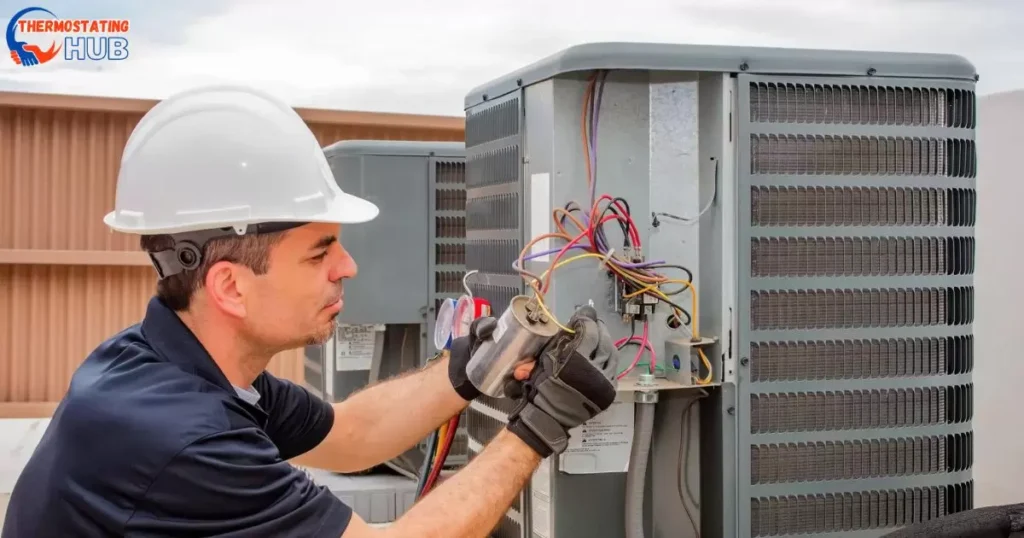
Ensuring your AC condenser runs smoothly is vital for a cool and comfortable home. Let’s dive into some expert strategies to prevent and address potential issues.
Regular Filter Check-Up:
One of the simplest yet effective strategies is regularly checking and replacing your AC filters. Dirty filters can lead to a cascade of problems, from restricted airflow to compressor issues. Don’t underestimate the power of a clean filter.
Thermostat Wiring Wisdom:
Another key player in the AC game is thermostat wiring. A properly wired thermostat is essential for your system to function correctly. Loose wires or disconnections can spell trouble. Take a moment to remove the thermostat, consult your manual, and ensure those wires are snugly connected.
Filter Indicator Lights – Your Friend:
Modern HVAC systems often have filter indicator lights. These nifty features remind you when it’s time to change the filters. Don’t ignore them! Regularly replacing filters can save you from the headache of a malfunctioning compressor or low superheat.
Compressor Conundrum:
If you find yourself in the unfortunate situation of a malfunctioning compressor, consider your options wisely. While compressors have a long lifespan, they can still act up. Before reaching for a new one, consult HVAC professionals. Sometimes, it might be more cost-effective to replace the entire system.❄️
In AC maintenance, a stitch in time saves nine. Stay proactive, watch the details, and your AC condenser will thank you with a continuous breeze of cool air.
Navigating the Pros and Cons of AC Condenser Units
| Pros | Cons |
| Efficient Cooling | High Initial Cost |
| Long Lifespan | Noise Generation |
| Enhances Indoor Air Quality | Regular Maintenance Required |
| Energy Efficiency | Space Requirements |
| Modern Features (e.g., Smart Technology) | Potential Aesthetic Impact on Property |
| Climate Control Options | Environmental Impact (Refrigerants, Energy Usage) |
🌐 Pro Tip: Consider your specific needs and priorities when weighing the pros and cons. Energy efficiency and advanced features may outweigh initial costs, while noise levels could impact daily comfort. Tailor your choice to align with what matters most to you.
Essential Key Takeaways for AC Condenser Maintenance
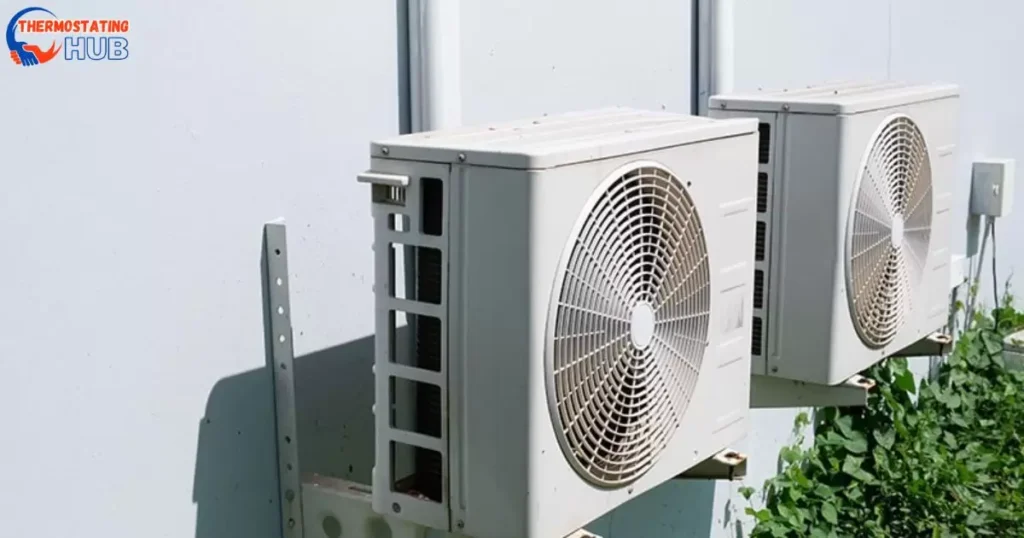
- Regular Filter Changes: Replace AC filters to ensure proper airflow and prevent issues.
- Thermostat Check: Verify correct wiring to avoid disruptions in system functionality.
- Monitor Filter Indicator Lights: Heed warnings for timely replacement, especially in modern HVAC systems.
- Compressor Awareness: Be vigilant for signs of compressor malfunctions and consult professionals when needed.
- Scheduled Professional Maintenance: Regular HVAC check-ups can catch potential problems early, preventing significant breakdowns.
Pro Tip: Consistent and proactive maintenance is key to a long-lasting, trouble-free AC condenser.
Answers To Key Questions
Why is my outside condenser blowing cold air?
The outdoor condenser unit is designed to release heat, not blow cold air. If it is blowing cold air, there might be an issue with the refrigerant levels or a malfunction in the system. Consult with an HVAC professional for a thorough inspection.
Why is my AC condenser not blowing hot air?
The AC condenser doesn’t blow hot air; it releases heat. If it’s not releasing heat effectively, there could be issues with the compressor, refrigerant levels, or airflow. Consult an HVAC professional for a proper diagnosis and solution.
Should air coming out of the condenser be hot or cold?
The air from the condenser should be warm, as its primary function is to release the heat absorbed from inside your home. If the air is cold, it might indicate an issue with the system’s operation, and professional assistance is recommended.
Why is my AC not blowing cold air inside?
Several factors could cause the AC not to blow cold air, including low refrigerant levels, a malfunctioning compressor, clogged air filters, or issues with the thermostat. It’s advisable to check these components or consult an HVAC professional for a thorough inspection and resolution.
Final Thoughts:
When your AC condenser blows cold air outside instead of heat, it can be attributed to various factors such as a stuck reversing valve, incorrect heat pump orientation, low freon levels, a failed capacitor, loose or disconnected wiring, and dirty air filters.
Each issue requires specific solutions, from replacing a solenoid for a stuck reversing valve to addressing low freon levels by identifying and sealing leaks.
Regular maintenance, including filter changes, thermostat checks, and compressor awareness, is essential to prevent and address potential problems. By staying proactive, you can ensure your AC condenser operates efficiently, providing cool comfort to your home.
Thank you for reading this article! If you have any additional questions or need more help, please don’t hesitate to ask. I appreciate your engagement! 📚😊

I’m James Wilson, your HVAC maestro from “Thermostating Hub.” Elevate your comfort with my expertise in heating, ventilation, and air conditioning. Let’s transform your space into a haven of perfect temperatures, tackling HVAC issues with precision and enthusiasm.
![AC Condenser Unit Blowing Cold Air Outside [Causes+Fixes]](https://thermostatinghub.com/wp-content/uploads/2023/12/ac-condenser-unit-blowing-cold-air-outside.webp)



